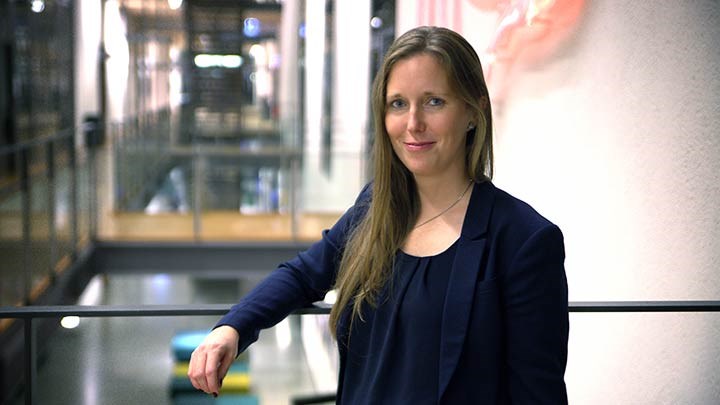Study shows for the first time that faecal samples reliably measure gut bacteria

“I’ve received a lot of feedback from other researchers,” says Julia Rode.
We’ve shown for the first time that simple faecal samples are a good peek into what it looks like inside the colon,” says Julia Rode, researcher in medicine at Örebro University. The study also shows that swabs give the same reliable results as faecal samples
For years, scientists and doctors have used faecal samples to find out what bacteria are inside the gut, without any real confirmation that the samples are accurate. Noone has been able to establish that the bacteria in the faeces are the same as those found further in the gut.
Now, for the first time, Julia Rode and her colleagues at the School of Medical Sciences have discovered a method to measure the bacteria deep within the colon, without first disrupting the bacteria by cleaning the gut.
“You could say that we’ve managed to build a kind of vacuum cleaner to take samples in the gut without contaminating them. This was something completely new to us and a complex puzzle to piece together,” says Julia Rode.
An unpleasant procedure
Normally, before entering the bowel, a bowel lavage or enema is performed, which also flushes out a lot of bacteria. Exploring the gut without affecting the bacteria that live there is complicated work.
“We are so grateful to the subjects who volunteered for this. It's really hard. It can be painful, or at least very uncomfortable, and the examination took a long time, sometimes a couple of hours,” says Julia Rode.
Julia Rode and her colleagues then compared bacteria found inside the colon with results from other methods, both faecal samples and samples taken with swabs. All three sampling methods gave essentially the same results, and the researchers were able to show for the first time that faecal samples reflect the bacteria in the colon.
No more samples in the fridge
The study also suggests that examinations currently carried out using faecal samples could be replaced by a much simpler swab. This could mean that in future patients would not need to take faecal samples to the doctor.
“Many people don't like carrying faeces around or having to keep it in the fridge. It's less taboo to come in and do a test with a swab,” says Julia Rode.
The study was published in October in the journal Gut Microbes, one of several scientific journals devoted entirely to bacteria and viruses in our gut.
“I’ve received a lot of feedback from other researchers who say that now they finally have an article to refer to when they want to sell in this concept,” says Julia Rode.
